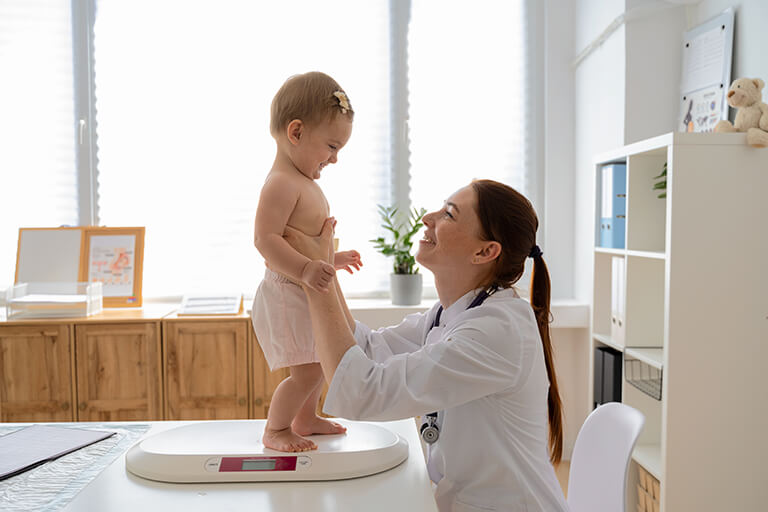Welcoming a newborn into the world is a moment of joy and hope for parents. However, not all infants have a smooth transition into life outside the womb. Some babies require specialized medical attention due to various health complications. This is where neonatologists step in, playing a vital role in providing expert care to newborns. In this article, we will delve into the essential responsibilities of a neonatologist and highlight the immense importance of their work in ensuring the health and well-being of these vulnerable infants.
What is a Neonatologist?
Neonatologists are medical doctors who specialize in the care of newborns, particularly those who are premature, critically ill, or have congenital disorders. They undergo extensive training and acquire in-depth knowledge of neonatal medicine to provide comprehensive care to these fragile infants.
Neonatal Intensive Care
One of the primary responsibilities of a neonatologist is to oversee the care provided in the Neonatal Intensive Care Unit (NICU). NICUs are specialized units equipped with advanced medical technology and staffed with a multidisciplinary team, including neonatologists, nurses, respiratory therapists, and other healthcare professionals. Neonatologists lead this team, coordinating and directing the care of premature and critically ill newborns.
Diagnosis and Treatment
A neonatologist is skilled in diagnosing and treating a wide range of conditions that affect newborns. From respiratory distress syndrome and infections to heart defects and metabolic disorders, they are equipped to identify and manage these complex medical issues. They work closely with other specialists, such as pediatric surgeons and cardiologists, to develop comprehensive treatment plans tailored to each infant’s unique needs.
Premature Infant Care
Premature babies, born before 37 weeks of gestation, require specialized care to support their development. The neonatologist plays a crucial role in managing the challenges faced by preterm infants. They closely monitor their breathing, heart rate, and temperature, ensuring that these delicate babies receive the necessary interventions and therapies to thrive.
Nutrition and Feeding Support
Proper nutrition is essential for the healthy growth and development of newborns. Neonatologists work closely with dieticians and feeding specialists to provide optimal nutrition to premature and ill infants. They assess their nutritional needs, establish feeding plans, and monitor their growth and weight gain to ensure they receive the necessary nutrients for their fragile bodies.
Family-Centered Care
A neonatologist understands the emotional toll that having a sick or premature baby can have on parents and families. They provide support, compassion, and open communication to parents throughout their newborn’s hospital stay. Neonatologists explain medical procedures, discuss treatment options, and address any concerns or questions parents may have, helping to alleviate anxiety and empower families to actively participate in their child’s care.
The Importance of Neonatal Care
The specialized care provided by neonatologists is essential for several reasons:
-
Saving Lives
Neonatologists are at the forefront of saving the lives of critically ill newborns. With their expertise and advanced medical knowledge, they can diagnose and treat life-threatening conditions, administer life-saving interventions, and ensure that newborns receive the necessary medical support to survive and thrive.
-
Preventing Long-Term Complications
Early intervention and specialized care can help prevent or minimize the long-term complications that premature and critically ill infants may face. Neonatologists closely monitor the infants’ growth and development, identify potential issues, and implement appropriate interventions to optimize their health outcomes.
-
Supporting Families
The impact of having a newborn requiring intensive care is profound on families. Neonatologists not only focus on the medical needs of the infant but also prioritize providing emotional support to parents and families. They establish strong relationships, offer guidance, and ensure families are well-informed and involved in their child’s care journey.
-
Advancing Medical Knowledge
Neonatologists contribute to the advancement of medical knowledge through research and clinical trials. Their work helps uncover new treatment strategies, improves medical protocols, and enhances our understanding of neonatal health. By staying at the forefront of medical advancements, they continuously strive to provide the best possible care for newborns.
Click here to read also: Why do you need a neonatologist for your baby?
Conclusion
Neonatologists play a crucial role in ensuring the health and well-being of newborns, particularly those who are premature, critically ill, or have congenital disorders. Their expertise, dedication, and compassion help save lives, prevent long-term complications, and provide much-needed support to families during challenging times. As we celebrate the miracles of birth, let us also recognize and appreciate the invaluable contributions of neonatologists in caring for our most vulnerable and precious little ones.
Dr. Olfa Koobar is an exceptional neonatologist in Dubai, known for her remarkable competence and expertise in the field. Her deep understanding of neonatology, along with her compassionate approach, enables her to provide exceptional care for premature and critically ill newborns.




